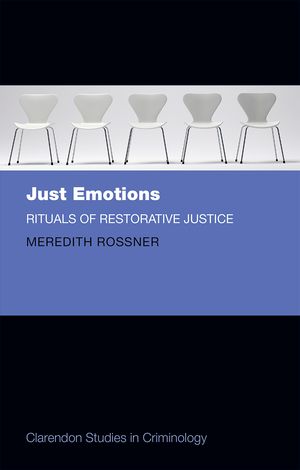We are now closed for the Christmas and New Year period, returning on Monday 5th January 2026. Orders placed during this time will be processed upon our return on 5th January.

Even as restorative justice has captured the attention of justice practitioners, academics and communities worldwide and most research suggests that it has the potential to repair the harm of a criminal offense and reduce offending, there is also evidence that it can have no effect or even make things worse.
Just Emotions: Rituals of Restorative Justice attempts to address these conflicting findings by analyzing how conferences work as a unique form of justice ritual. With a pioneering new approach to the micro-level study of the processes and emotions involved in successful conferences, this book offers clues on how to improve the practice and increase successful outcomes. Using an eclectic methodological approach, the author presents a model that adapts Goffman's and Collins' ideas about the interaction ritual chain by focusing on participants' emotions, emotional turning points, and the emergence of rhythm and solidarity between participants. The approach involves a contrasting systematic empirical program, including a combination of qualitative interviews, detailed observations of discourse, face and demeanour, and quantitative analysis of systematically observed conferences, in order to improve the capacity of facilitators and practitioners to produce successful outcomes. Offering an exploration of how rituals unfold dynamically in space and time, alongside analysis of both failed and successful rituals, Just Emotions provides a statistical model of the ritual elements of restorative justice and how these rituals may impact reoffending.